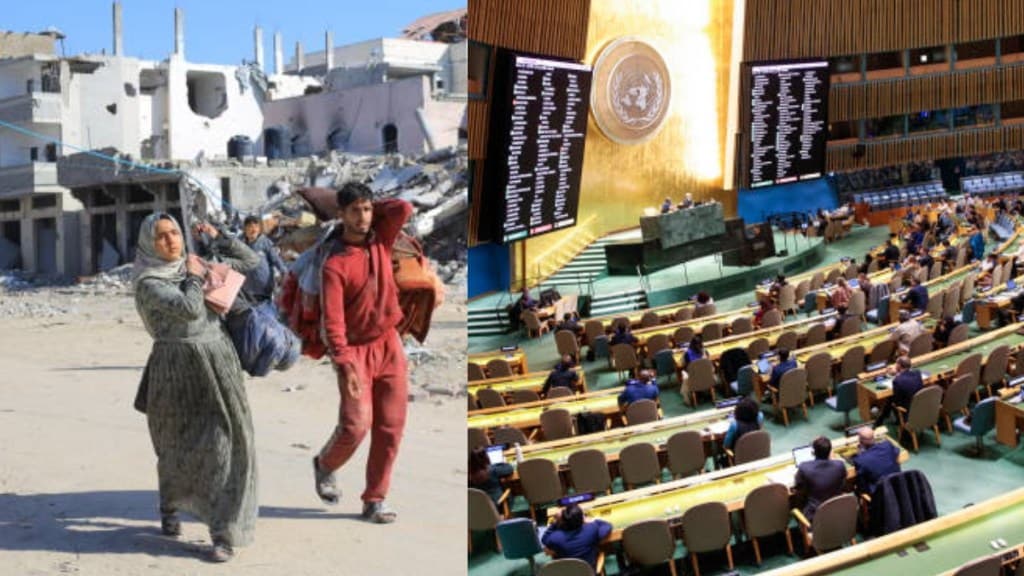In a powerful address during the 10th Emergency Special Session of the United Nations General Assembly on December 4, 2024, UNGA President Philemon Yang condemned the ongoing violence in Gaza and Israel, which has led to unprecedented levels of death, injury, and displacement. Over 43,000 Palestinians have been killed, and more than 100,000 injured, with civilians—especially women and children—bearing the brunt of the suffering. Amidst this devastation, roughly 100 hostages remain in captivity.
A Clear Call for Ceasefire and Humanitarian Access
Yang underscored the urgent demands of the international community:
• Immediate Ceasefire: An end to hostilities in Gaza to prevent further bloodshed.
• Hostage Release: The unconditional release of all remaining hostages.
• Humanitarian Aid Access: Unhindered access for humanitarian organizations to deliver aid to Gaza’s suffering population.
• Respect for International Law: All parties to the conflict must fully comply with international and humanitarian law.
These demands reflect the broader global consensus, articulated in several UN resolutions and highlighted in a recent draft resolution at the Security Council, which, despite overwhelming support, was blocked by a veto from a permanent member. Yang expressed frustration with the paralysis in the Security Council, which has failed to act on its primary responsibility to maintain international peace and security, leaving the General Assembly to take a leadership role.
The Need for a Just and Lasting Peace
Yang emphasized that the Israeli-Palestinian conflict cannot be resolved through perpetual war and occupation. The path to peace, he argued, lies in the establishment of two sovereign states—Israel and Palestine—living side by side in peace, security, and dignity. He called for an international resolution grounded in international law, the UN Charter, and relevant UN resolutions, asserting that a comprehensive, just, and lasting peace will only come through adherence to these principles.
The Perilous Future of UNRWA and the Humanitarian Crisis
A central concern raised by Yang was the future of the United Nations Relief and Works Agency for Palestine Refugees (UNRWA), which provides critical services such as shelter, food, water, and medical care to millions of Palestinians. Recent actions by the Israeli Parliament, including the adoption of two laws that could severely restrict the agency’s ability to operate in Gaza and the West Bank, were met with alarm by the UNGA President. He warned that the cessation of UNRWA’s operations would exacerbate the already catastrophic humanitarian situation in Gaza and leave Palestinian refugees without life-saving assistance.
Yang called on Israel to honor its international legal obligations and allow UNRWA to continue its work, emphasizing that this would be a step toward alleviating the suffering of Palestinians and ensuring that humanitarian aid reaches those in need.
A Call to Uphold the UN Charter and Human Dignity
In closing, Yang reminded the Assembly that the UN Charter’s fundamental principles—justice, respect for international law, and the dignity of every human being—are the foundation for peace and security. These principles, he argued, are critical not only for the people of Gaza and Israel but for the broader international community. To secure lasting peace, all nations must take concrete action to uphold these values and work towards a fair and just resolution of the Israeli-Palestinian conflict.


